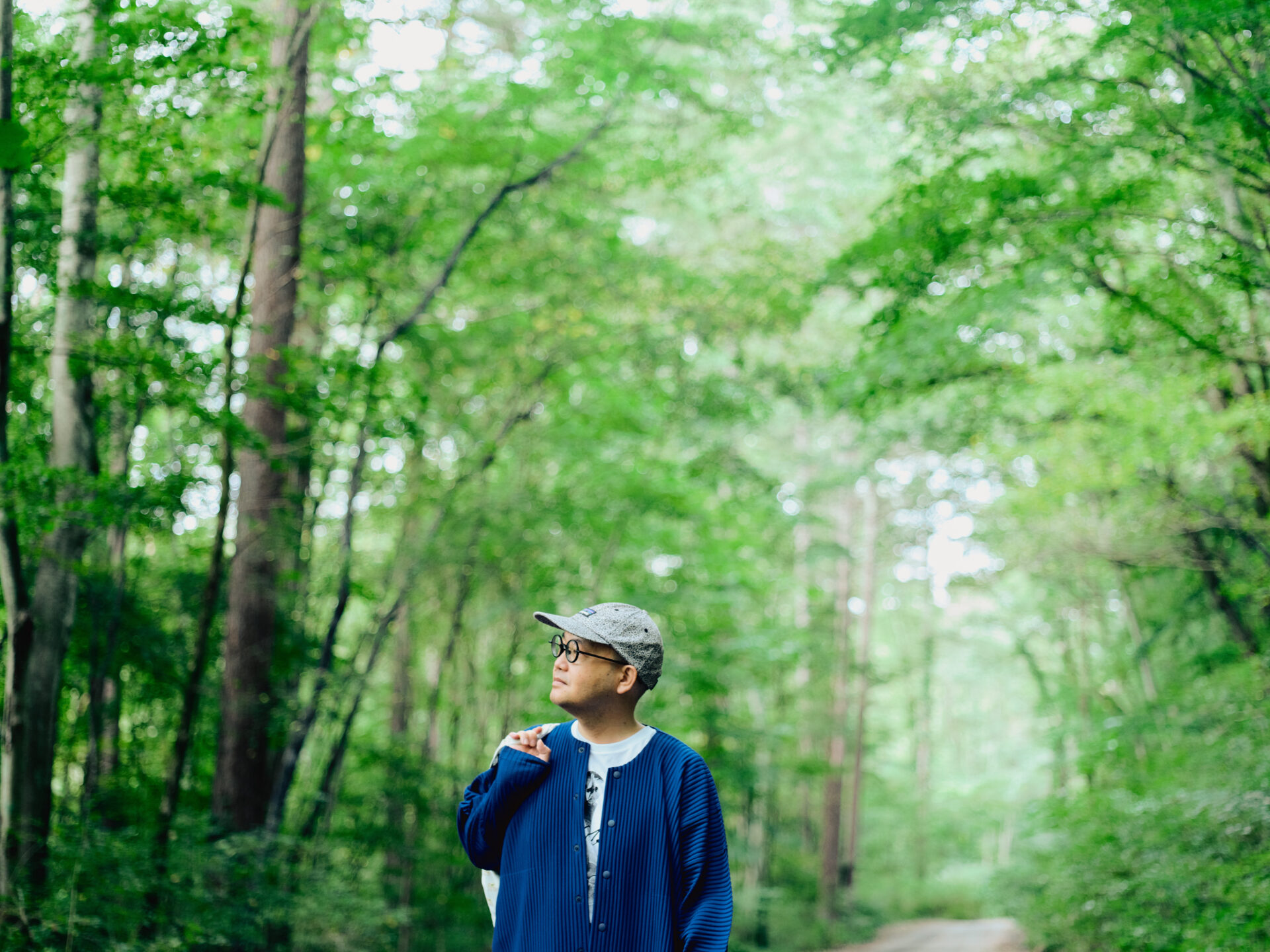Alcohol and cigarettes are often cited as examples of shikohin, however they are often looked down upon when we talk about habits for good health. When you begin to list the things that are bad for your body there is no end in sight and it can deprive us of enjoyment in life, but is depriving ourselves of shikohin really beneficial for our health?
In order to address our questions on what good health really means and the possible future of shikohin, we visited the Director of Karuizawa Hospital, Doctor Toshiro Inaba.
Although Western medicine practices are mainstream in Japan, Dr. Inaba rephrases the word “health” with “harmony” and incorporates traditional medicine, Oriental medicine and even traditional arts into his practice.
We spoke to Dr. Inaba about his explorations in medicine and harmony, how to understand shikohin through his perspective, and how we should approach shikohin in our daily lives.
Expanding the categories in medicine to include arts and literature
The moment I stepped off the train at Karuizawa Station, I felt my whole body relax as the tension naturally lifted from my body. I felt open, but at the same time I realized that I had been feeling tense throughout the train ride.
Looking inwards I found that as I was traveling among the waves of people in Tokyo Station I was unconsciously protecting myself from the overflowing sense of urgency that filled the air.

I recalled a passage in Dr. Toshiro Inaba’s book, “Inochi wa Nochino Inochi he” (Life for later life) which he published in 2020.
Everything from food, warm interactions with others, art, music and daily living are things that should be felt and received by the whole body, not only our minds. This is why it is important to open up our bodily senses first, as if opening up all the pores on our body. That is the passageway that connects our outer and inner worlds.
Inochi wa Nochino Inochi he ~ The human mind and body
Dr. Inaba works as the Director of Karuizawa Hospital and his practice of medicine expands beyond common Western medicine to incorporate a wide range of traditional and folk medicine as well as traditional arts, arts and literature. He also writes books and gives lectures on topics that cross and interconnect these fields.
Dr. Inaba says that the reason he began expanding his practices into these various fields was due to a build up of small uncertainties in his mind.
“When I was a medical student I felt uneasy with the Western medicine’s view of seeing the disease as the enemy, rather than trying to understand what the body is trying to tell us as a whole. In Japan, we are taught mostly Western medicine in school and we don’t get a lot of exposure to the history of medicine or traditional medicine, which has a longer history than Western medicine.”
“As I began studying Oriental and traditional medicine in order to explore the roots of medical practice, I was struck by the concept of seeing oneself as the center of things and that developed into an interest in medicine that went beyond Western practices.”
“However, I soon realized that my next challenge would be to face the current and massive medical system that is already in place. The current medical system is biased toward Western medicine practices so I felt that in order to change that, we would first have to expand the categories of what we consider to be medicine. That is why I work in categories such as art and literature, that transcend the boundaries of medicine. Nonetheless, I believe that medicine and art are all connected. I find that many people find it surprising to learn how much everything is connected to medicine. (laughs)”
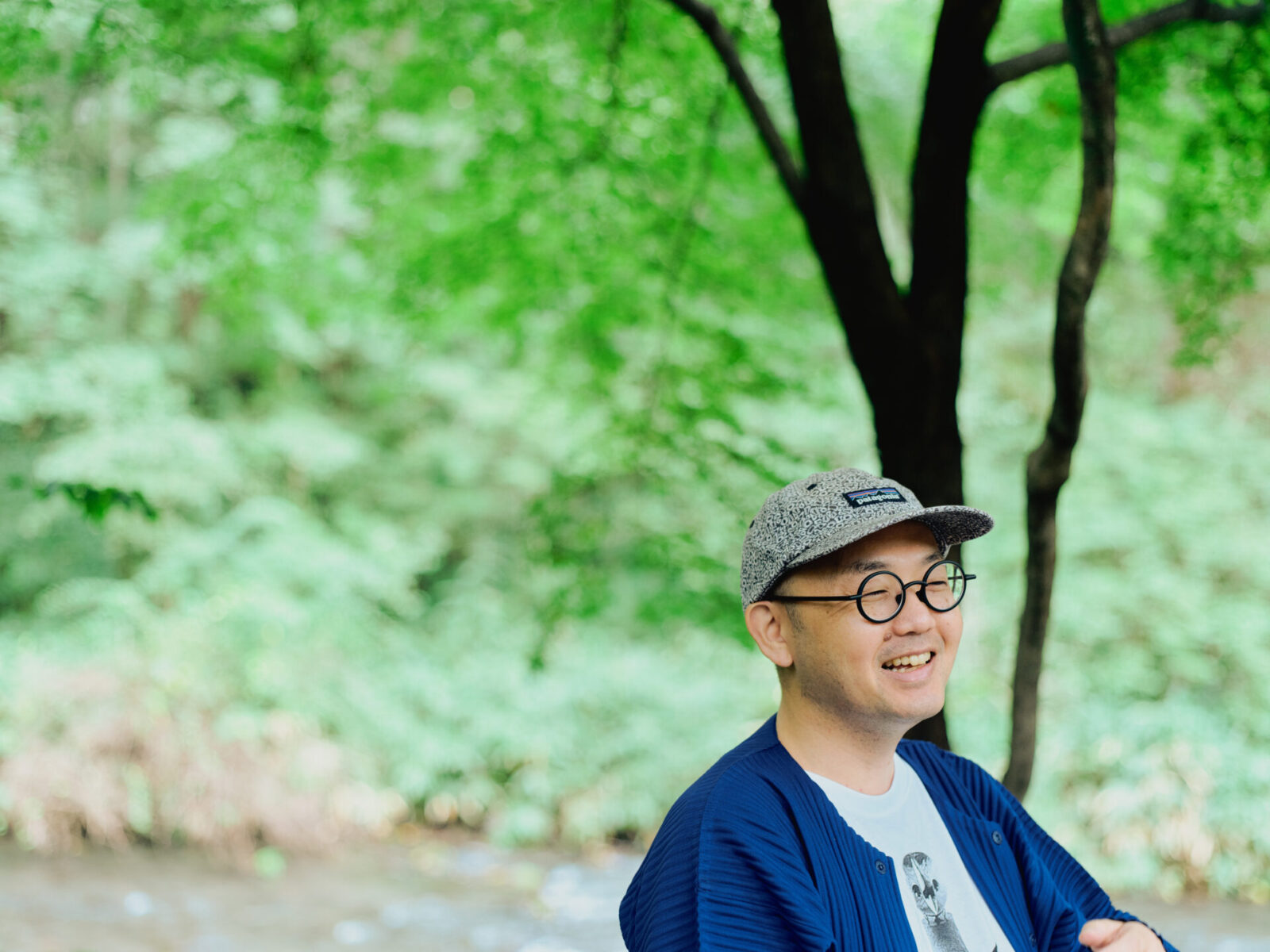
Where does a cup of coffee come from? The reason why organizations should be valued
In many cases, people who work to expand or cross over into new categories in medicine work alone. However, Dr. Inaba works as the head of an organization, the Karuizawa Hospital. We asked him why this is and he talked about why the process of decision making in organizations is so important.
“When you start a private practice or a private hospital you are able to work alone or with only like-minded people in order to achieve your ideals quickly. However, my goal is not simply to pursue my own ideals and happiness.”
“I think it is important for various people to look at an issue and make their own decisions. In a world that is increasingly becoming divided and focused on personal success, I think it is important to think about how we can find understanding, including among people who are indifferent, and think about how we can move forward together. I put a lot of value in that process.”
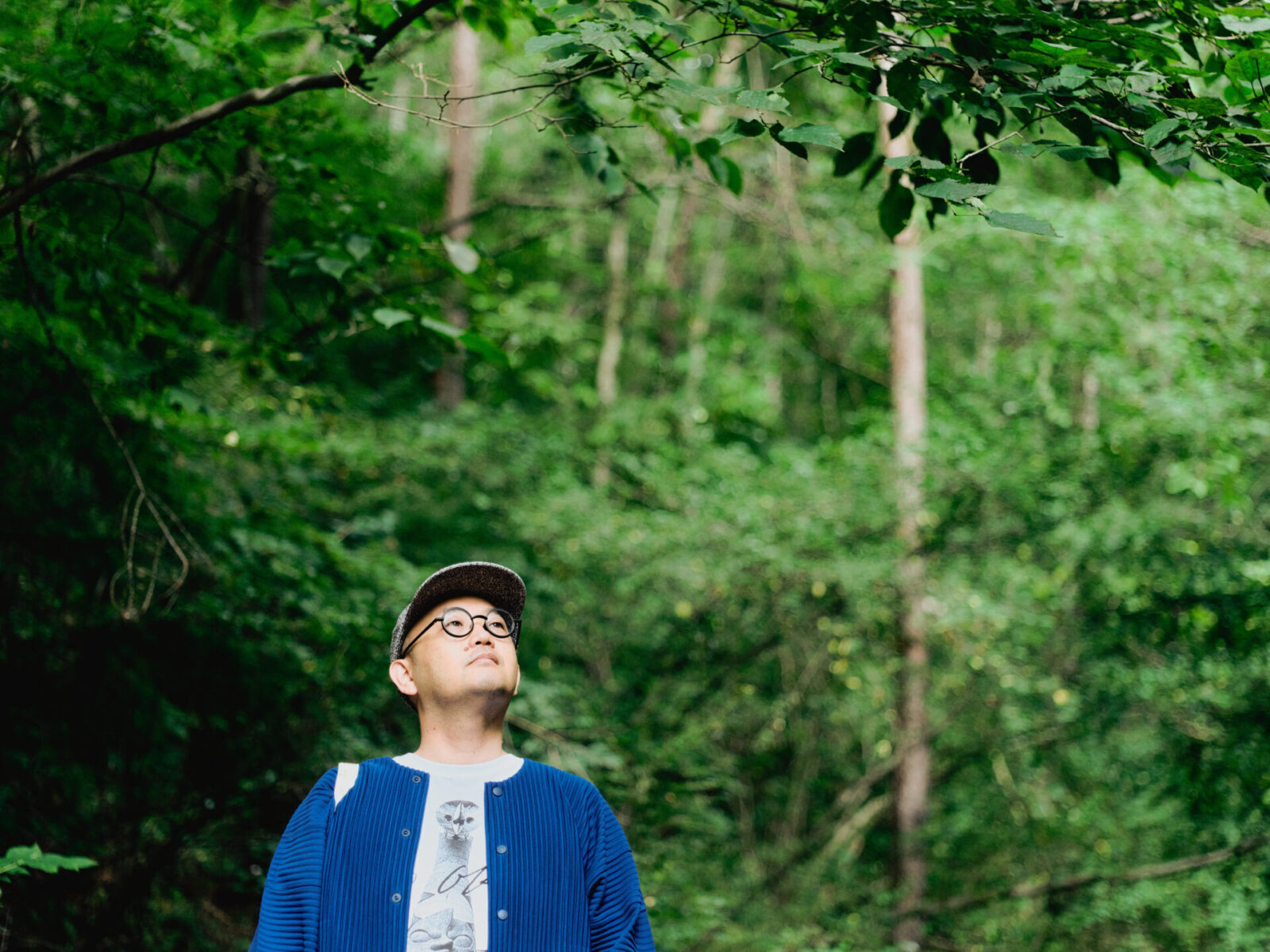
Inaba’s book “Inochi wo Yobisamasu Mono” (Things that awaken life) was published in 2017 and was focused on individual lives. On the other hand, his book which was published during the coronavirus pandemic, “Inochi wa Nochino Inochi he” was about the relationship between individuals and place.
Why did he choose to write about “place”? He says the underlying idea comes from his desire to create a world where the individual and the place can coexist.
“For example, the reason why we have access to water at the turn of a faucet is because someone is doing the work to bring that water to you. The same is true with the coffee we drink. Someone is making the coffee beans, importing them, grinding them and preparing it so we can drink it. In this way, we exist thanks to the power and relationships among many people.”
“Despite this fact, there are people who tend to think only about personal gain and safety and this concerns me. If we only pursue our personal comfort or the realization of our personal ideals, it may seem right in the short term, but in the long term I don’t think it leads to good results.”
“Individual” shikohin and shikohin of “place”
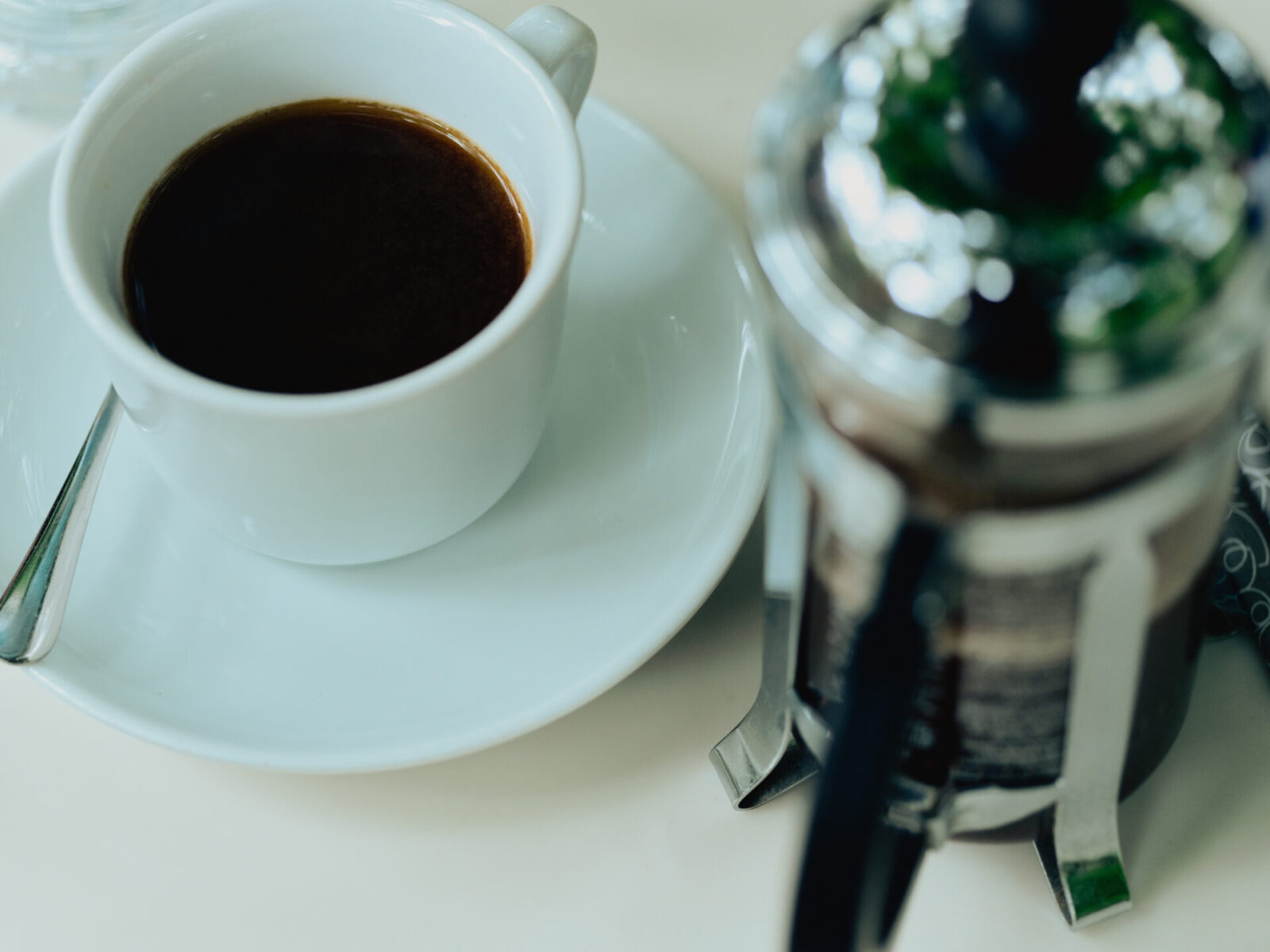
Dr. Inaba says that he does not drink alcohol or smoke cigarettes, but he has a way of experiencing shikohin that is neither individual or group oriented. Although he does not force himself to consume shikohin, he uses it as a mediator for communication so it can be enjoyed together.
“I ask my wife what she would like to drink almost everyday. Is it coffee, tea, or green tea? Asking this question and hearing the answer lets me get a general idea of how she is feeling.”
“Although there are various factors that may affect us, such as the weather or how we spent the day before, some days we want the same drink and some days we want something different. We do not necessarily say the words “I want coffee because I am feeling a little tired”, but we are able to form a mutual understanding and get a sense for each other through this interaction.”
When asked what shikohin he enjoys, Dr. Inaba says “I think it is hot barley tea.”
“I often drink tea when I want to switch up my mood. I feel that when I drink tea I am able to reset and return to the place that I am supposed to be.”
“I go to Tokyo about once a month and for some reason I always get an urge to drink coffee when I am there. I feel that there is an unconscious influence that “place” has on people that makes them adapt and act in certain ways.”
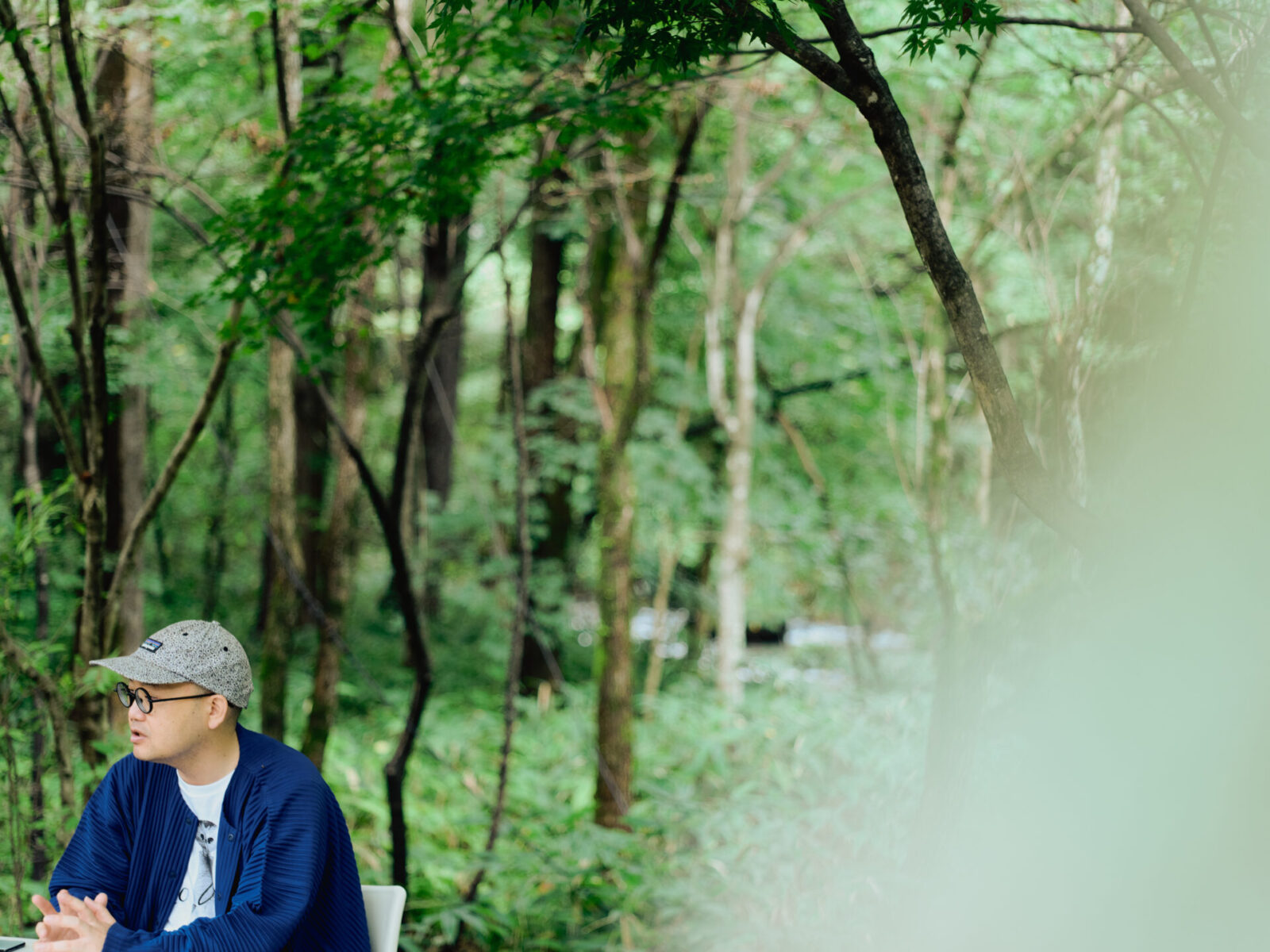
We got the impression that Inaba consciously incorporates shikohin into his life in order to initiate some positive effect on himself. On the other hand we often hear of people using shikohin to “drink their problems away” or smoking cigarettes when they are heavily stressed.
We asked Inaba what he thinks about when he enjoys shikohin.
“Whether it is alcohol, cigarettes, or tea I feel that my body is more aware of the significance of the act than my mind is.”
“For example, let’s say one were to run 10 laps around a school field. The way we experience that will be very different if we were doing it for our own health or in preparation for a marathon, compared to running as punishment after getting in trouble at school. The same is true for shikohin. The way our bodies react will largely depend on the meaning and significance behind the act itself.”
“In a way, the use of substances to force a human reaction is a kind of wisdom to survive. For example, alcohol was originally used in ceremonial settings to dismantle the framework of everyday life. It was meant to remove all social status and hierarchy and create an equality for people under God. At times, I am sure this had a very positive effect on society.”
“On the other hand, there are many cases where negative experiences are strongly associated with shikohin, such as people using it to escape a hard reality, or forget their pain. I feel that shikohin used to deal with such negative things cannot go beyond that category. Personally, I think people ought to experience shikohin in positive contexts.”
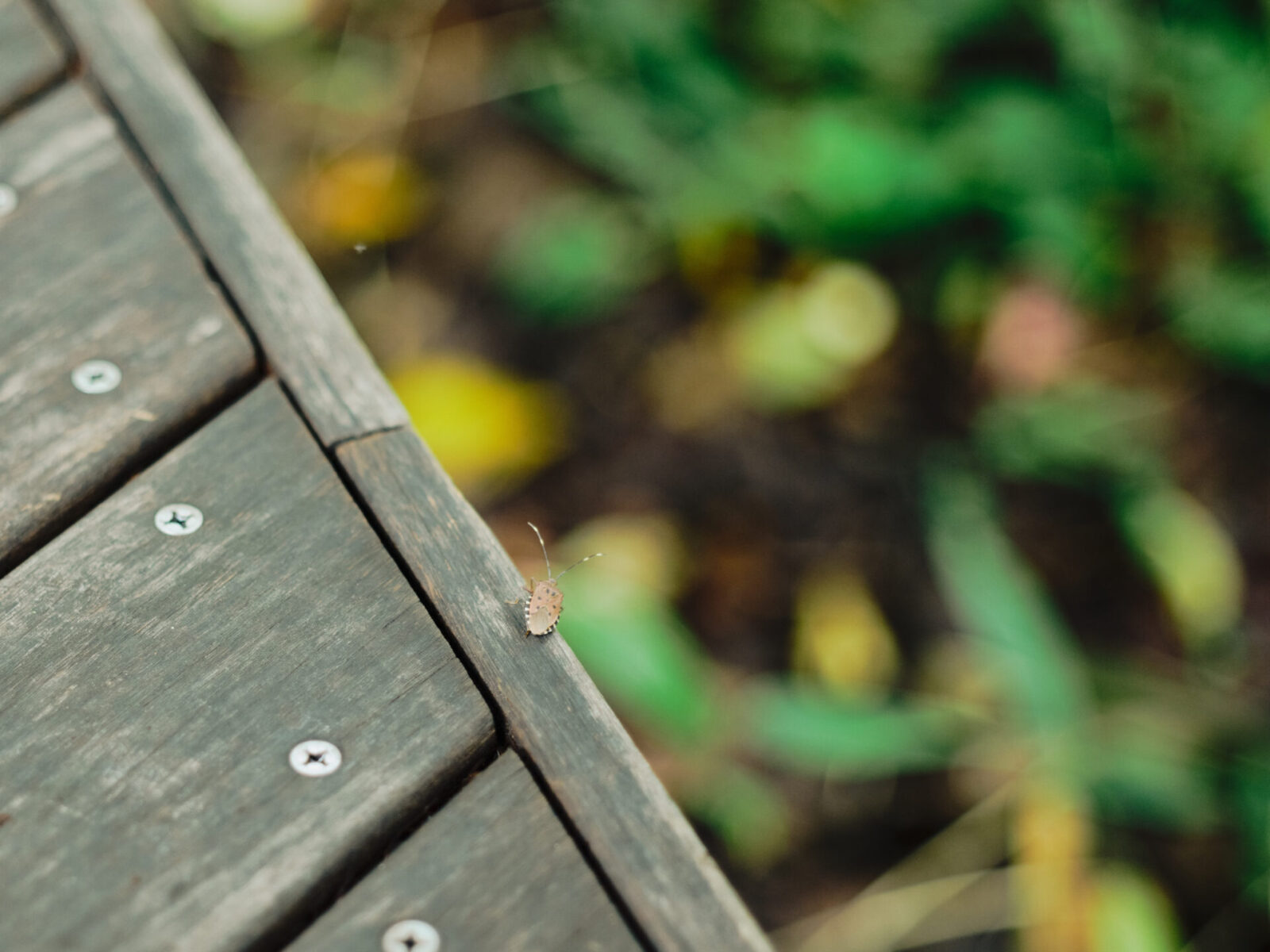
Ogai Mori translated the German word “Genuss-Mittel” which means a method of enjoyment, into the Japanese word “shikohin.” In his 1912 book “Fujidana” (The Wisteria trellis) he wrote:
Beside medicines, there are many shikohin that are necessary in life that can also become a poison.
Fujidana (The Wisteria trellis)
If we apply this passage by Ogai Mori to Inaba’s perspective, whether a shikohin will be medicine or a poison is up to us. The act of experiencing shikohin is strictly based on the individual.
Does your body really crave that shikohin?
As we spoke to Inaba about what exists between shikohin and the individual, we became curious about why we desire shikohin in the first place.
How should we face our individual desires for shikohin? We asked Inaba what defines the “individual” when it comes to enjoying shikohin.
Inaba answered, “The danger of addiction is something that exists everywhere for us, not only in shikohin.”
“When we think of shikohin we often think of alcohol or things with caffeine in it, however social media and food can also be a shikohin. How we handle the danger of addiction is an unavoidable problem we face as human beings.”
“The moment our brain experiences pleasure, a circuit is born that desires to experience that pleasure again. These are the early symptoms of addiction. Although we have caffeine-free or alcohol-free options, choosing these does not mean that you are not experiencing symptoms of addiction.”
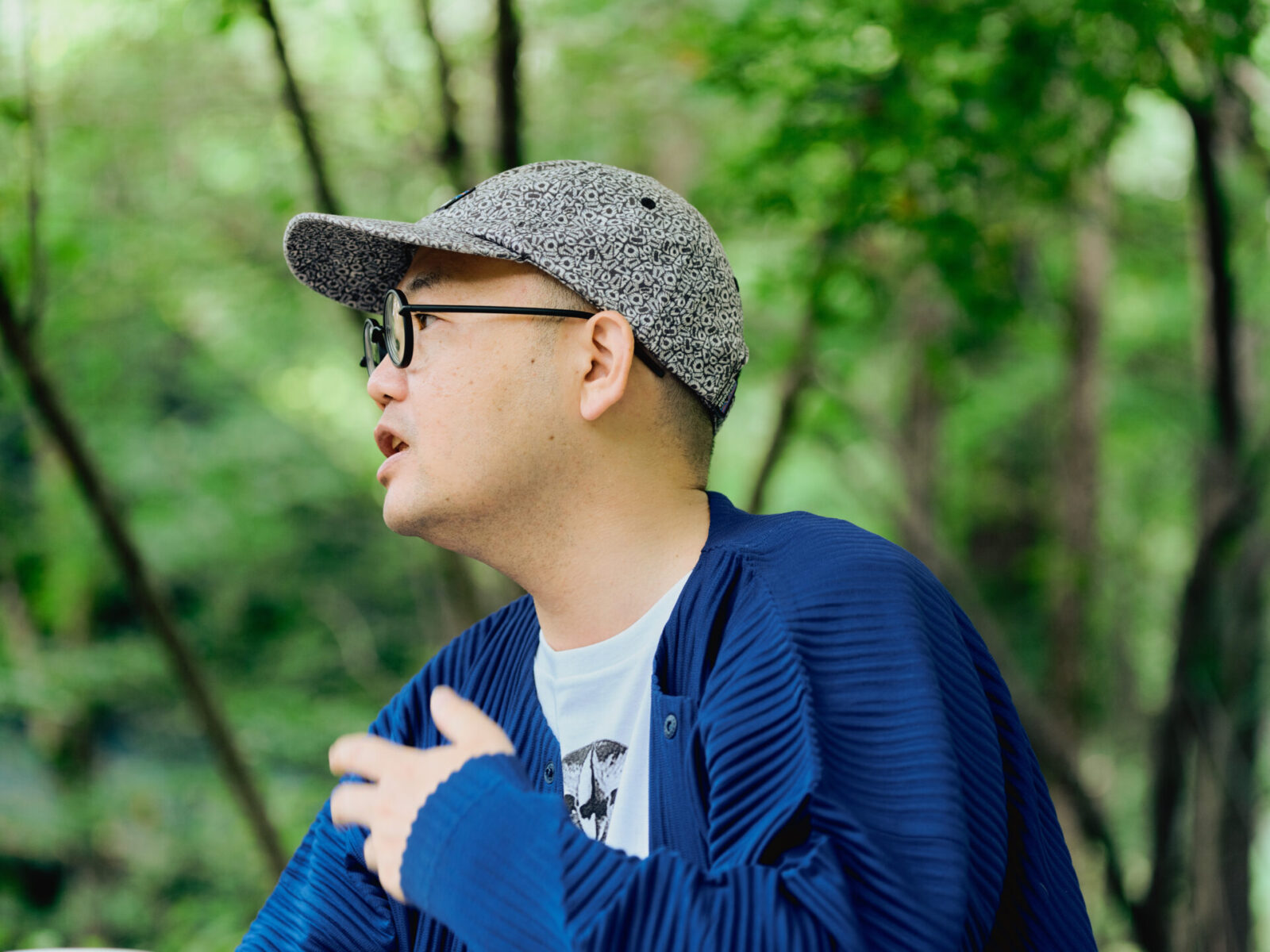
So how should one deal with addiction?
“Although it may be impossible to avoid addiction symptoms completely because of the way we humans are built, if you feel discomfort in your body or your mind is signaling some signs of distress, you need to be able to pick up on that. I think whether you can safely enjoy shikohin or not depends on whether you can pick up on these signs and make decisions to avoid addiction.”
Inaba puts a lot of importance on the ability to stop for a moment and think.
Is our desire for something really coming from our hearts? What is the reason why we are consuming shikohin? It is important to pick up on the smallest hints of discomfort from our bodies and keep questioning and contemplating ourselves.
“I think there are many shikohin that the body does not necessarily want, but we choose to consume it because our minds desire them. We may have a conditioned response of wanting a cup of coffee when we see a sign for a coffee shop, or we may have a habit of drinking coffee at a certain time of day.”
“However, if your body truly desired to have a cup of coffee I think you would gulp it down the moment it was put in front of you. Most of the time, this is not the case. I think it is important to question whether your mind has simply decided that it needs coffee at a certain time or not. We should ask ourselves what our body is desiring, not only our mind.”
Inaba says that he also stops, reflects and discovers things on a daily basis.
“I often crave coffee, but after I make a cup of it I realize that my body did not want it. On these days I reflect on the disconnection between my mind and body.”
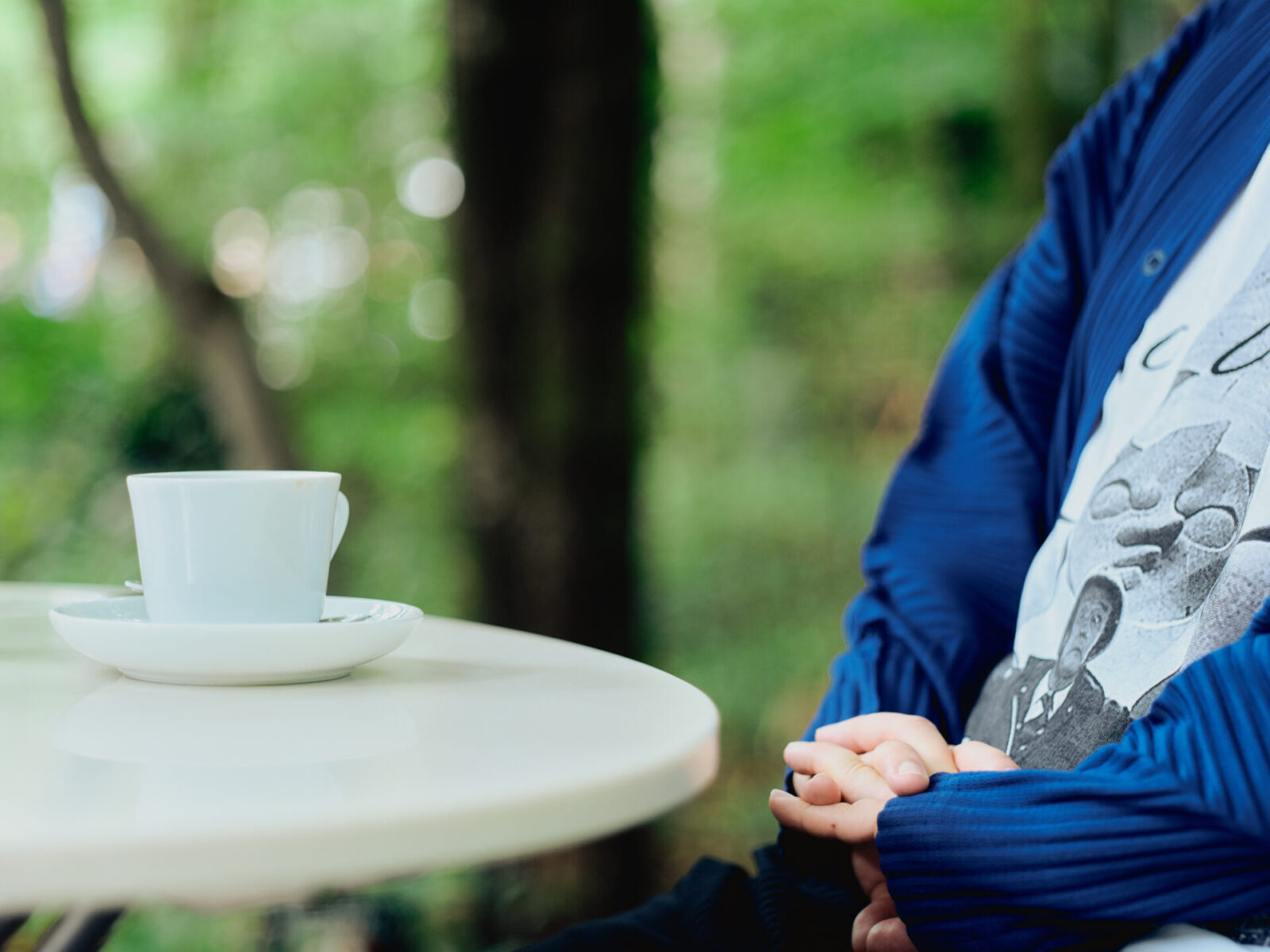
How to decipher the desires of the mind and body for shikohin
In order to become aware of whether or not we are having symptoms of addiction, it is necessary to be able to stop and reflect on our intentions when we crave a shikohin.
However, it is very difficult to look at oneself objectively.
Inaba shared, “It is easier to recognise symptoms if you keep your mind and body open on a daily basis and allow for good circulation in between. This allows you to measure and maintain a safe distance with the source of addiction.”
“To give an abstract example of what this means, imagine that there is a window in between your mind and body and that your mind is the “study” and your body is “bedroom.” There are different rooms and spaces in the human body and they are all separated. If there were no windows between them and they were open or closed all the time, it can cause stress to build up. This is why it is important for us to be able to open and close the window between them.”
“From this perspective, our bodies are like a single house. As one will do with their house, it is important to open the windows and doors in the mind and body to let the air flow through.”

Indeed, spending time working in your study or relaxing in your bedroom are two separate sensations, even when they are done in the same house. Naturally, we change our mindsets by moving from one place to another.
Although it may sound like an abstract metaphor, Inaba says that he practices inner reflection on a daily basis.
“Many people have a complete disconnect between their mind (study) and body (bedroom) or they close certain windows and lose the key to open them again.”
“Before facing our desires and shikohin, we must first be able to separate what is in our minds and what our bodies are desiring. Otherwise we cannot tell if we are tricking ourselves into thinking that we desire something, or if it is something that our body genuinely wants. If you become numb to these sensations, you cannot notice your addiction symptoms or recognize your body’s cries for help.”
Inaba says that “this is why we need a safe place to air out our minds and bodies.”
“This safe place can be at home, a museum, or a cafe. If you make it a habit to communicate your mind and body on a daily basis you will begin to get a sense of what it means to open and close your windows. I think this will not only help in your relationship with shikohin, but also help you better work with yourself.”
“Focusing on your belly or stomach region is also helpful. There are a lot of sayings that are associated with the stomach region of the body when it comes to emotions of calmness or clarity, such as having a “gut feeling.” Perhaps the people of the past realized that the thoughts in our minds are often influenced by evil or outside influences so thinking with our gut better reflects the voices of our bodies and inner selves.”
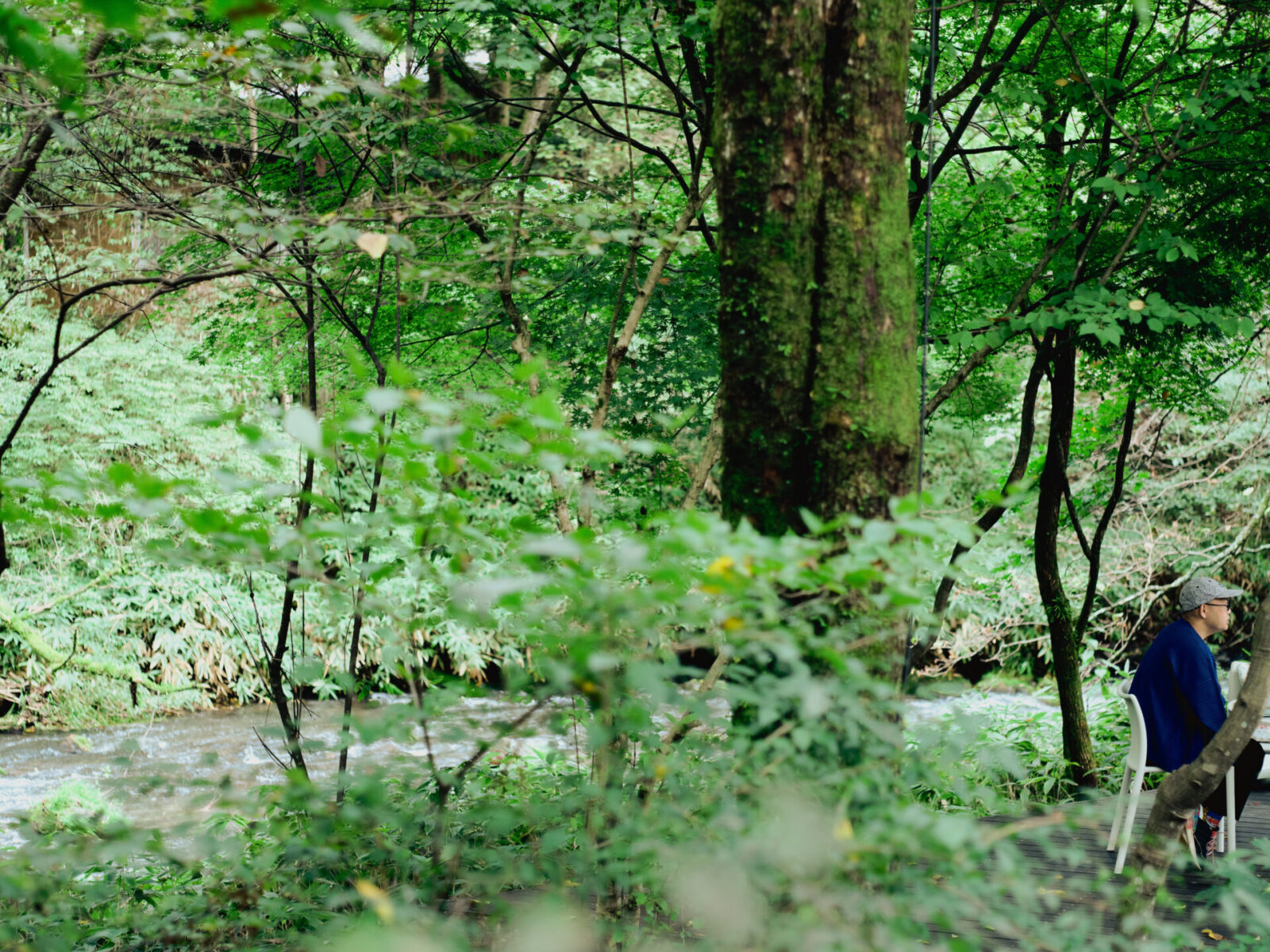
Inaba repeats, “When you have a solid relationship with your mind and body, you will be able to recognize when your mind is about to be taken over by addiction.”
Not only that, if we continue to focus our awareness on the mind and body we will be able to understand our true and inner desires. Perhaps this is a necessity for us who live in the modern world, where we are constantly bombarded with overflowing information and material things.
The relationship between individuals, society and “others” through shikohin
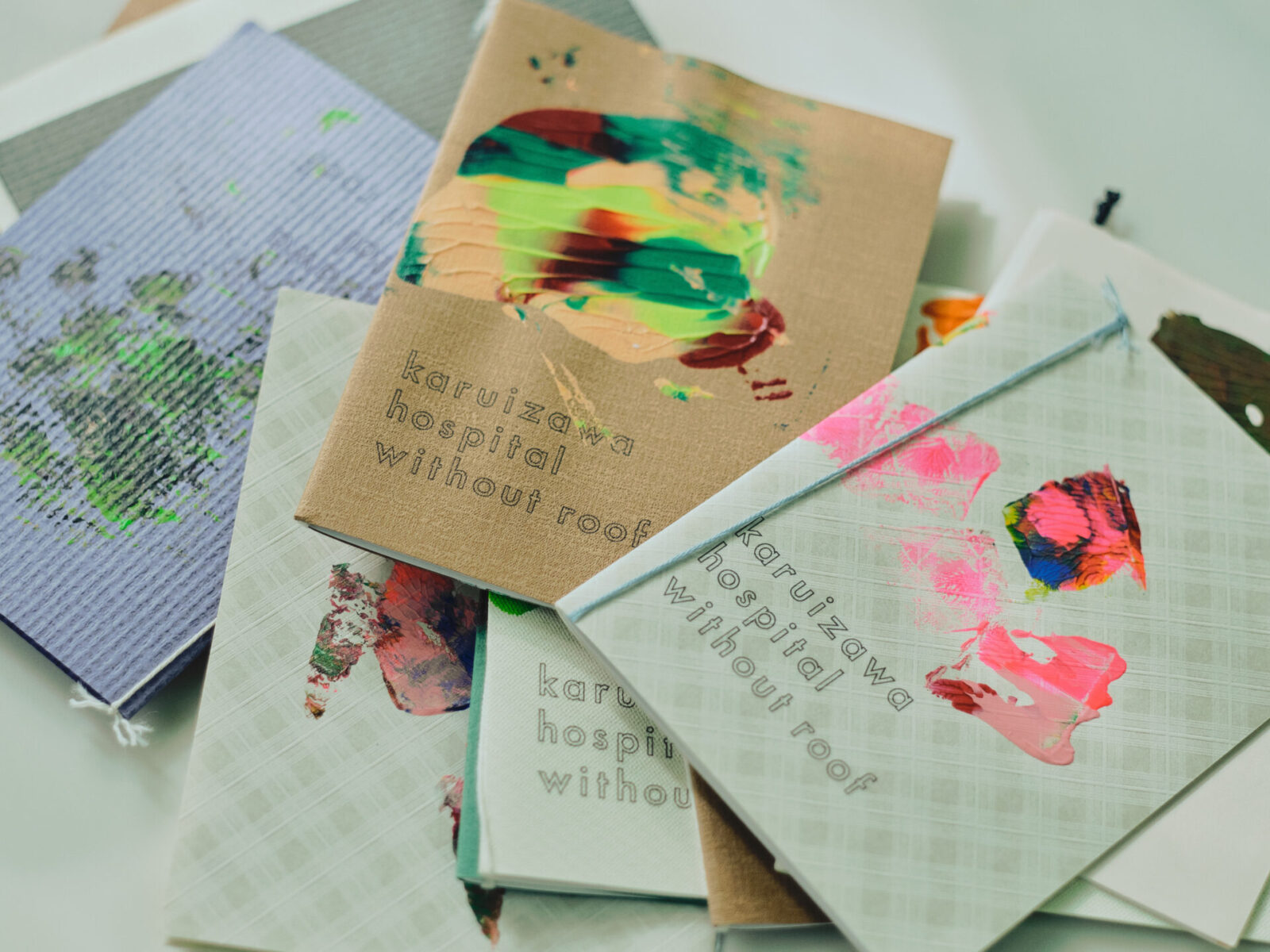
What struck me the most in my interview with Inaba was that as we talked about the micro existence of shikohin and individuals, the conversation expanded from “place” to “environment” and from “individual” to the “whole” of society, and then back to the “individual” again.
Inaba told us how having a strong foundation of “self” and “individual” allows us to enjoy shikohin in a positive way, without getting swallowed up by them or developing addictions.
On the other hand, Inaba expressed his concerns of how we incorporate shikhon in the competitive society we live in today.
“In today’s world we have taken efficiency and competition for granted and speed and quality are the things that are seen as valuable. In a world where we seek such things, people tend to ignore the sensations of their bodies and remove the brakes to stop themselves. In order to keep running, we turn to alcohol, caffeine and drugs and I think that is why many people form addictions today.”
“I think the accumulation of such addictions has led us to keep the windows of our mind and body closed.”
“There may be people who use shikohin as a source of energy in order to keep running after higher “speeds” and “heights.” However, this may be because we are subconsciously trying to adapt ourselves into a society that emphasizes such “speeds” and “heights.”
“Rather, I think we must have a more macro perspective that allows us to question, “How much are we willing to sacrifice?””
When we question what it is that we are being consumed by and what it is that we are trying to consume, we can turn our inner gaze outwards to the world.
“Achieving a goal faster than anyone else may stand out and seem glamorous and good at first glance, but human history has been built on community and cooperation. Working in harmony with others in society is a skill we must learn and I do not want to forget the basis and origins of community.”
“If we get too consumed by the pursuit of individual happiness, we lose the opportunity to be constrained and influenced by others. There may be people who see constraints as a negative thing, but it is only natural that some brakes and restraint is necessary to survive in this world where so many people coexist. I think a safety brake or method of preventing our egos from running wild is rather important.”
“Keeping pace and walking with humanity as a whole is important to me. That is not the same as compromise. It is the process of sharing a bigger goal and growing into a better version of ourselves while ridding ourselves of ego.”
“Thinking about how humanity can exist as a whole is what creates harmony between the individual and the world. We cannot only think about one individual or a single place. I think it is important to go back and forth between the micro and macro as we live our lives.”
When Inaba thinks of himself as an individual, he is always thinking about the existence of others.
“In order to realize harmony, friendship is just as important as how we are as individuals.”
“I think that the more society encourages the idea that personal happiness is the most important thing, the more ruin it brings to the individual. I think it is important to cherish the people who point out to you when a separation between your mind and body is happening.”
“Some people may reject those who point out things that are hard for us to hear. However, I think that their existence acts as a mirror that shines a light on the shadows that we do not want to see. If we forget about the existence of our shadows, we lose our brakes, forget painful things, and consume shikohin in order to make ourselves feel good. This leads us to an addiction that we cannot get out of. First, we must attune ourselves to our inner mind and body and then expand our awareness to the people and places that surround us.”
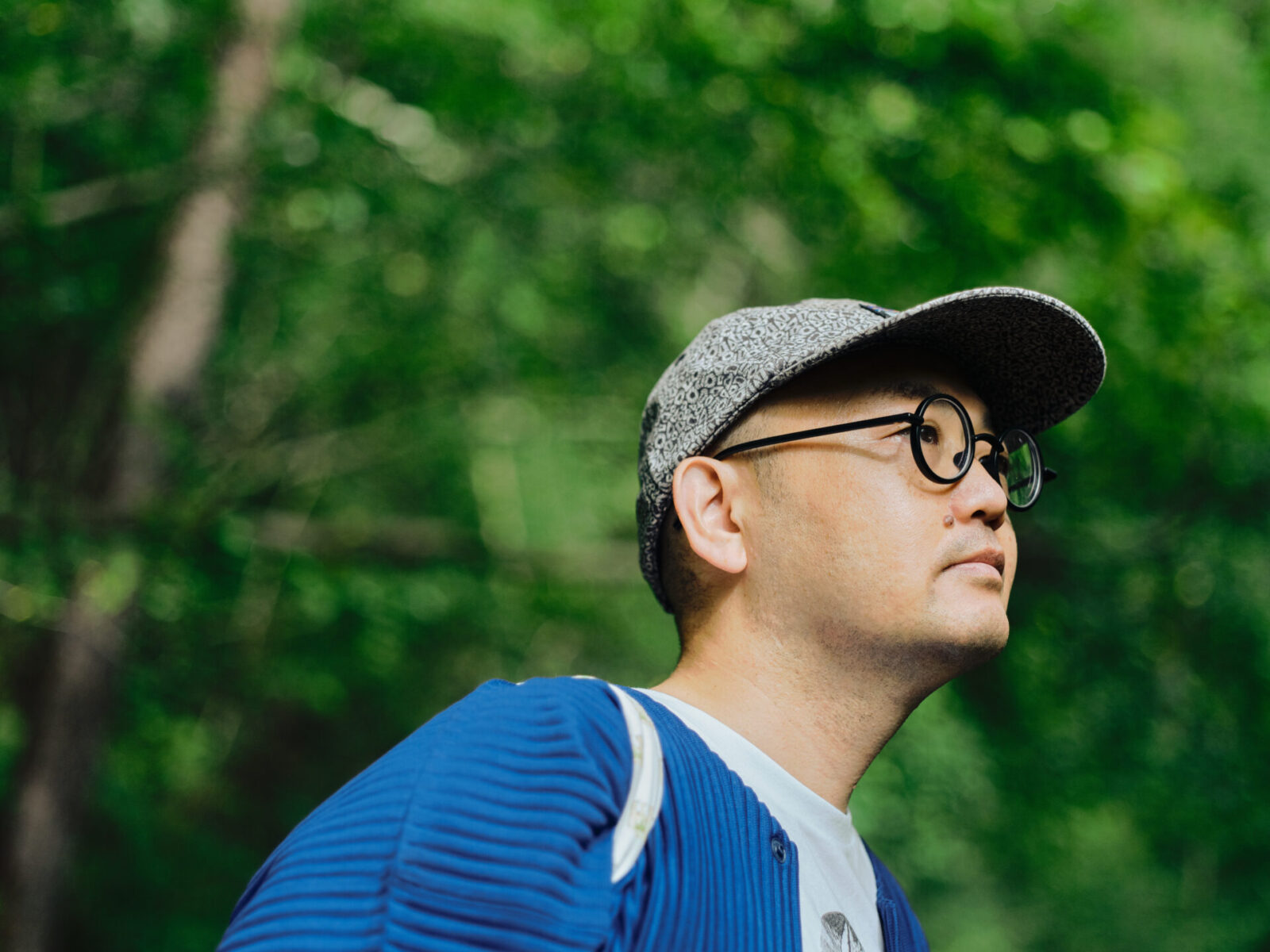
Translation: Sophia Swanson
Born in 1998, she began her career as a writer in 2018. 2021 she entered the Open University as a working university student, taking courses in cultural anthropology and museum studies. Her hobbies are reading and walking.
Editor, Writer, etc., for PLANETS, designing, De-Silo, MIMIGURI, and various other media.
